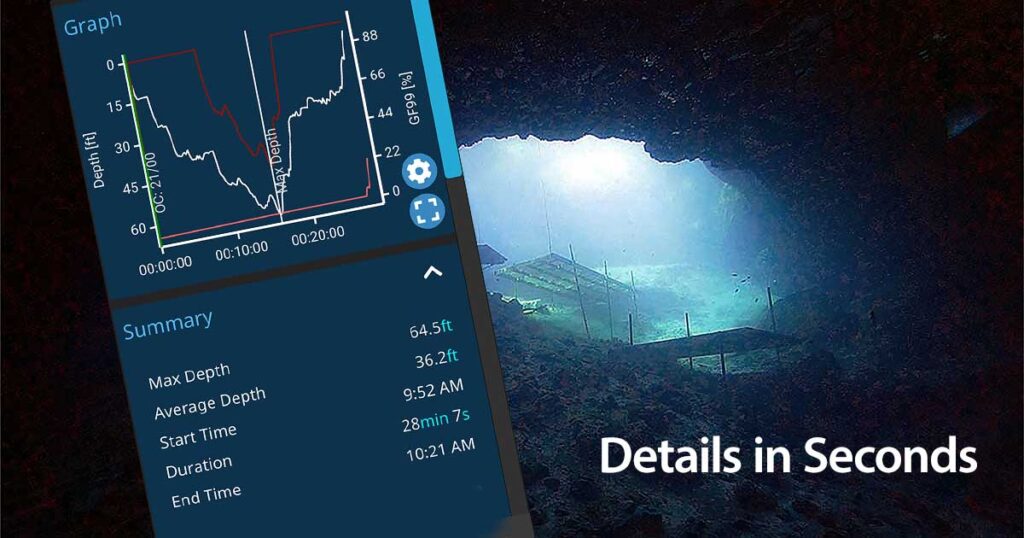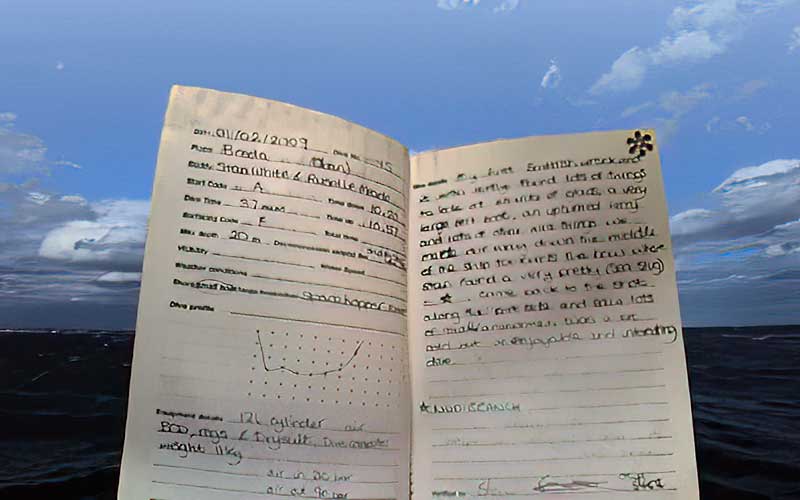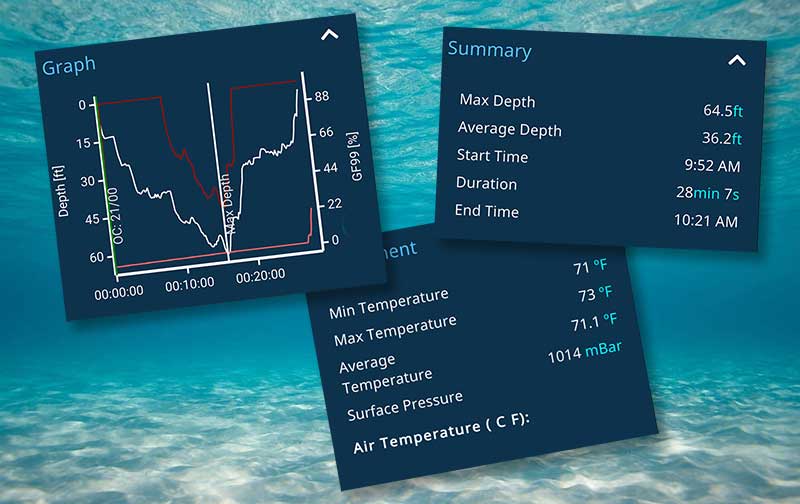We recently took a young man from the UK on a guided dive at Blue Grotto. When he first signed up, he indicated that his prior diving experience was limited to his four certification dives. However, by the time he arrived, he had completed the additional dives needed for his Advanced Open Water certification in Malta.
When asked about his experience, he said he was caught off guard when the dive operator asked to see his logbook. He didn’t have one — even though, with most training agencies, logging dives is a requirements for certification.
The bottom line is, although it may not be common, you never know when an instructor or dive operator will ask for proof of experience. It’s best to be prepared.
Why and why not?
There are many reasons to keep an up-to-date dive log beyond the fact you may be asked to show one. Among them:
- Your dive log can record how many dives you’ve made and the cumulative total of how much bottom time you’ve accrued.
- Your log can show instructors and dive operators the range of environments you’ve encountered while diving.
- It can record how much weight you need with suits of various thicknesses and tanks of different sizes.
- To enroll in many continuing education courses, especially at leadership levels, you must be able to provide proof of having logged a certain number of dives.
The list goes on and on. So, is there any reason not to maintain an up-to-date dive log? There is. It’s that doing so can be a pain in the butt.
At least, this is how most divers appear to feel, given that so few keep an up-to-date record of their dives. And that’s unfortunate.
What to log
While some divers enjoy recording every minute detail of their dives, most don’t. So, what is the minimum information your dive log should contain? For every dive you make, you need a record of four things. These are:
- Date
- Location
- Maximum depth
- Actual bottom time
Anything past this is up to you.
However, there is one additional requirement your dive log must meet. That is, proof that you didn’t sit down with a paper dive log, a bunch of different color pens and a fertile imagination, inventing dives that never took place.
Most paper dive logs provide a place for a buddy or dive leader to sign. This is better than notthing bu can be faked. At Blue Grotto, we give away small decals you can affix to the bottom of each log page. Devil’s Den has a rubber stamp for this.
However, there is no way to authenticate a dive log you don’t keep.
A better way
It stands to reason that if there were a faster and easier way to log dives, more people would do it. And there is.
Nearly all modern dive computers can upload detailed dive log data to an app on your phone, tablet or computer. For lower-end computers, you may have to purchase a separate interface. On better-quality models, the computer will communicate directly to your phone or other devices via Bluetooth.
Here is how we do it using a Shearwater Peregrine:
- We start by putting the dive computer into Bluetooth mode. This takes just a few button pushes.
- Next, we open the Shearwater app on our phone.
At this point, the app begins uploading any dive data that is not already on our phone. This includes everything you see here:
All we have to do now is enter the dive number and the dive site’s name. If it is a location we’ve been to, we can select it from a dropdown menu. The entire process takes less than a minute.
The app will allow us to enter more information if we choose. However, this is already more than appears in most paper logbooks.
There is no faking this
We’ve already mentioned how easy it is to write imaginary dives into a paper logbook. However, a visual representation of your dive profile from your computer is virtually impossible to fake.
This provides proof that you actually made the dives you claim.
Paper logs are so last century
If you are among the handful of divers who truly enjoy keeping a detailed paper log, that’s okay. Just hope you never lose that logbook, as there will be no backup unless you spend time at a copy machine making one.
In contrast, if you regularly back up your phone or use a cloud-based logbook app like Shearwater’s, you can lose your phone but not your log. Additionally, because you almost always have your phone with you, you won’t have to fish your logbook out of a gear bag or panic when you realize you left it at home.
These days, dive computers are widely considered standard equipment for all divers. They are among the first things new divers should purchase before regulators, BCs or cameras. Just make sure that, when shopping for a dive computer, it will make logging dives effortless.





